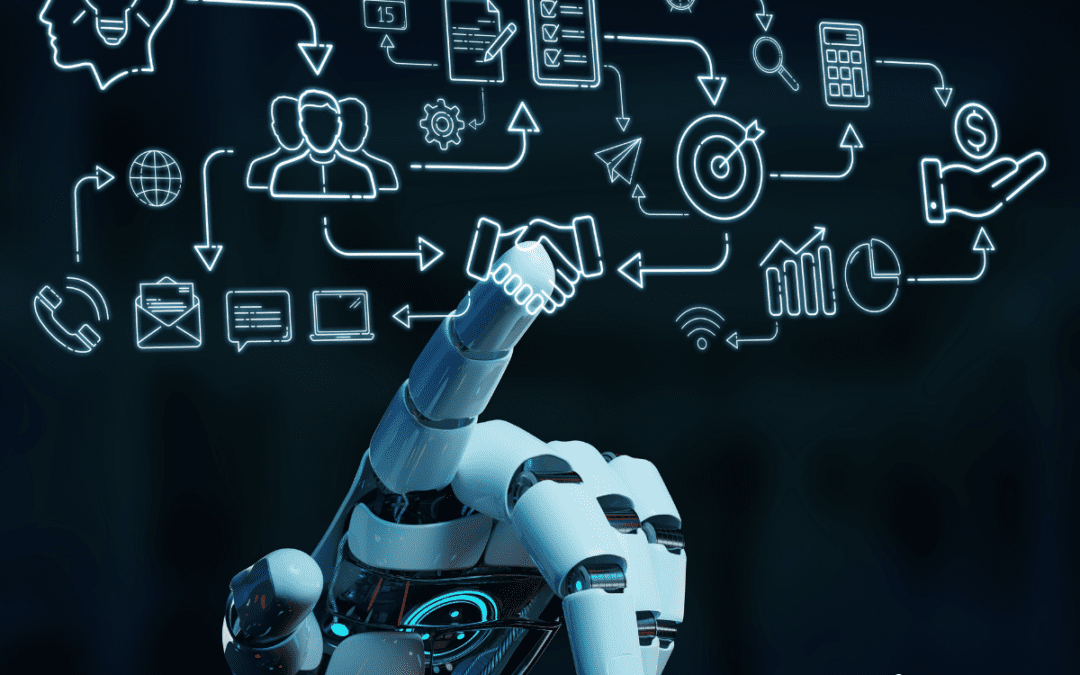We asked Jasper AI how developments in AI threaten supply chain resilience, this is how it responded:
Supply chain resilience is a critical aspect of business operations, especially for large companies that rely on complex supply chains to deliver products and services to their customers. In recent years, there has been a surge in the adoption of artificial intelligence (AI) technologies across various industries, including supply chain management. While AI offers tremendous benefits such as improved efficiency and cost savings, it also poses significant threats to supply chain resilience.
AI-driven innovations such as predictive analytics, machine learning, and automation have become essential tools for managing supply chains. These technologies help companies analyze vast amounts of data and make accurate predictions about demand, inventory levels, and logistics. By automating routine tasks and streamlining processes, AI enables companies to reduce costs, improve operational efficiency, and enhance customer service. However, the reliance on AI also creates vulnerabilities that can disrupt supply chain operations and undermine resilience.
One of the biggest threats posed by AI is the potential for system failures or malfunctions. As AI systems become more sophisticated, they require a vast amount of data to function accurately. If there is a problem with the data, such as missing or incorrect information, it can lead to errors and disruptions in supply chain operations. For example, if an AI system predicts a high demand for a particular product based on faulty data, it can result in excess inventory and financial losses for the company. Similarly, if there is a malfunction in an automated warehouse system, it can cause delays or errors in order fulfillment.
Another major concern with the use of AI in supply chain management is the potential for cyber-attacks. As companies become more reliant on AI, they are also becoming increasingly vulnerable to cyber threats. Hackers can exploit vulnerabilities in AI systems to gain access to sensitive information or disrupt operations. For instance, a hacker could manipulate an AI system’s decision-making processes, resulting in incorrect inventory levels or delayed shipments.
The increasing complexity of supply chains, coupled with the rapid pace of technological advancements, also presents challenges for companies using AI. As supply chains become more global and interconnected, there is a higher risk of disruptions caused by factors such as natural disasters or geopolitical events. If an AI system is not equipped to handle these complex scenarios, it can lead to significant disruptions in the supply chain.
Moreover, the use of AI in supply chain management also raises ethical concerns. As AI systems become more autonomous, they can make decisions that have a significant impact on people’s lives and livelihoods. For example, an AI system may optimize transportation routes to reduce costs, but it could also lead to negative environmental impacts or harm the livelihoods of small-scale suppliers.
In conclusion, while AI has the potential to greatly improve supply chain management, it also poses significant threats to supply chain resilience for large companies. To mitigate these risks, companies must carefully consider the ethical implications and prepare for potential disruptions caused by technological advancements and cyber threats. Additionally, companies must ensure that AI systems are continuously monitored and updated to handle complex scenarios effectively. Only then can AI truly contribute towards building a resilient and efficient supply chain for large companies. So, while AI may bring about many benefits, it is crucial to recognize and address the potential risks and challenges to ensure a sustainable future for supply chains. So, even as companies embrace AI technology in their supply chain management, they must do so with caution and remain vigilant in monitoring its impact on their operations. By continuously evaluating and adapting AI systems, companies can harness their potential while minimizing disruptions and maintaining supply chain resilience. In this way, the use of AI in supply chain management can lead to a more efficient, ethical, and resilient future for large companies. So, it is crucial for companies to stay informed about the developments in AI technology and adapt accordingly to ensure a strong and sustainable supply chain.

